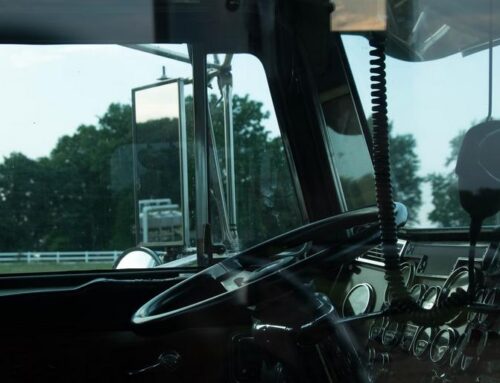Recently, the Indiana Court of Appeals decided to narrowly construe an established federal case precedent and found that when a shipper assumes the responsibility of loading he may owe a duty to the carrier for the defects which are latent and concealed in the load. Specifically, in Wilkes v. Celadon Group, Inc., 121 N.E.3d 1095 (Ind. App. 2019), the court found that summary judgment for a shipping company who prepared a trailer for transport with a load that eventually injured the driver was improper as the shipping company failed to conclusively prove that it did not owe a duty to the driver to properly secure the load.
In Wilkes v. Celadon Group, Inc., Paul Michael Wilkes (Wilkes), a truck driver hired by Celadon to transport engine parts, was directed by a Celadon load coordinator where to drop his empty trailer and where to find a loaded trailer for transport. The trailer had been loaded by a Celadon employee named Rick Wilson (Wilson), who testified that a “tapering” method had been utilized when loading the trailer. Wilson testified that he had stacked the trays in a commercially acceptable manner so as to secure the load and that it was Wilkes responsibility, as the driver of the truck, to make sure that the load was secure before closing the trailer and accepting the load for transport. Before leaving Wilkes did a cursory review of the load inside the trailer but was not able to actually climb in and look at the load in detail due to the way the engine parts in the trailer had been organized. After arriving with the cargo, Wilkes opened the doors of the trailer and was struck by several stacked trays, suffering serious injuries including a broken neck and brain trauma.
The trial court below granted summary judgment for Celadon and stated that because Wilkes had an opportunity to inspect the load prior to hauling it that Celadon did not owe him any duty of care as a matter of law. In ruling that no duty was owed, the court cited to the Federal Motor Carrier Safety Regulations which indicate that a driver may not operate a commercial motor vehicle unless the cargo within is properly distributed and adequately secured. In addition the court looked to the Savage Rule, a legal precedent created in the federal circuit which states that liability on carriers will be imposed for the loading done by shippers, even when the loaders are negligent. The court found that Wilkes had an opportunity to inspect the load before driving away and he failed to fulfill his primary responsibility which resulted in his own injury.
The Indiana Court of Appeals reversed the trial court and found that Celadon had not tendered sufficient evidence to negate the element of duty in Wilkes’ claim. Specifically, the court noted that while the Savage rule imposes liability on carriers for the negligent loading of shippers, the rule does allow for shippers to be held liable if the carrier’s tractor trailer was loaded negligently and that negligence was undiscoverable through a reasonable and safe inspection. In considering the high summary judgment burden in Indiana, the Court stated that:
To negate the element of duty in Wilkes’s negligence claim, it was not enough that Appellees show a duty, even a ‘primary’ duty. Even under Savage, a duty will be imposed where a shipper was negligent ‘and that negligence was undiscoverable through a reasonable safety inspection. To prevail, Celadon would have had to show that a fact-finder could reach only a single conclusion, that is, no latent defect (one not evident upon reasonable inspection) existed.
The situation faced by Mr. Wilkes in this case is one that our firm, the Law Offices of William W. Hurst, LLC, deals with on a constant basis. If you or someone you know has been injured while loading or unloading a trailer, we here at LOWWH are dedicated to fighting for your rights no matter how aggressive the insurance company’s lawyers are. Feel free to call us at 317-636-0808 or visit us online at www.hurstlimontes.com for a free consultation today.





